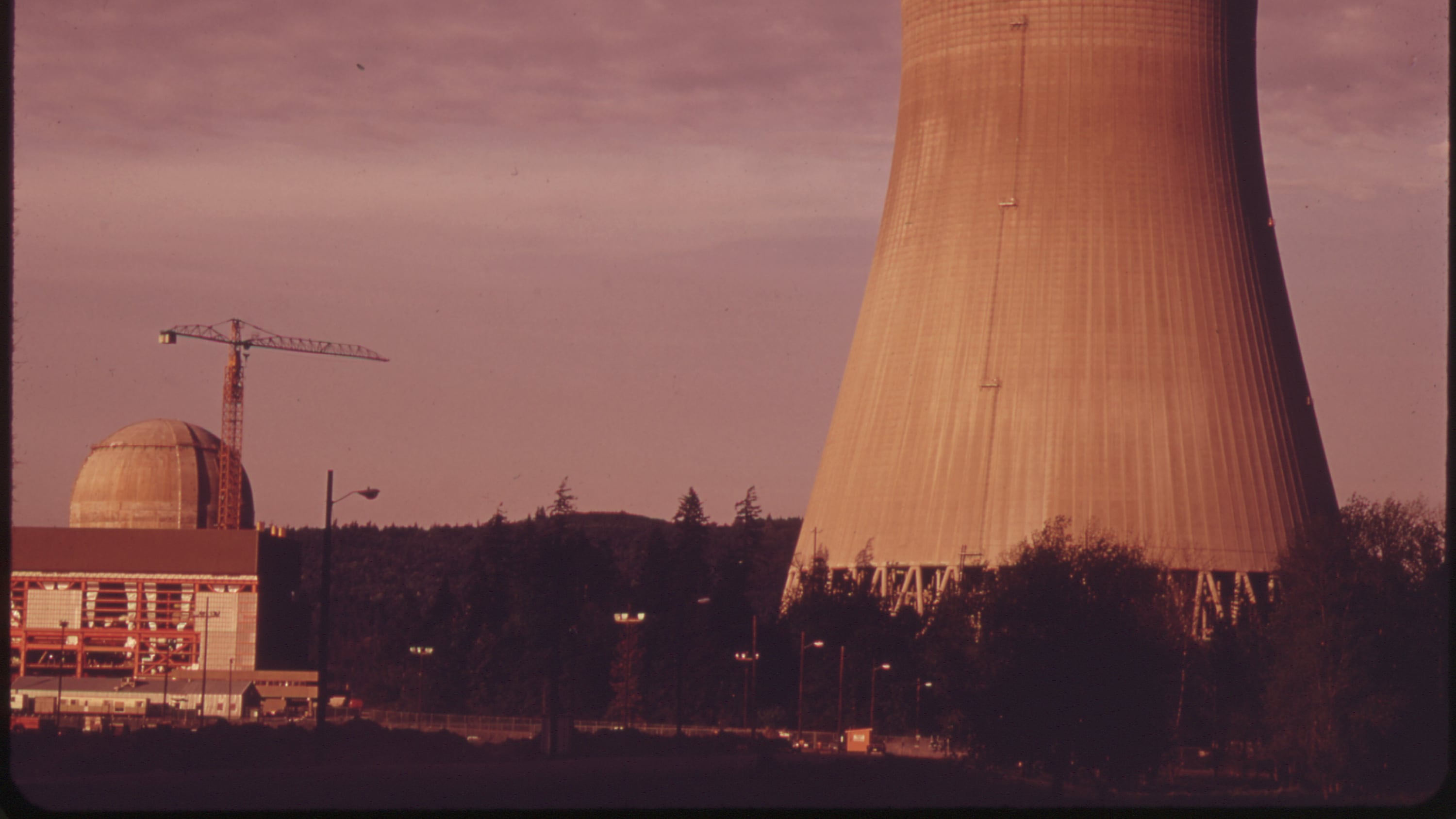Dr. Know is distilling eggnog. He will return in 2019. Meanwhile, here's a classic question from 2014.
Are there still spent fuel rods stored at the site of the former Trojan nuclear plant, or were they moved to Hanford when the cooling tower was dynamited by PGE? Also, would it be legal for a new nuke plant to be sited in Oregon? —Inga
As you can tell from my thick, lustrous hair, chiseled abs, and smooth, peaches-and-cream complexion, Inga, I'm clearly much too youthful to remember Trojan myself. But I hear from Grandpa it was a clusterfuck from more or less the get-go.
Trojan Nuclear Power Plant opened in 1976, only to be closed for repairs for most of 1978 after regulators realized it wouldn't survive certain earthquakes. This would be a recurring theme.
The facility reopened just in time for the 1979 Three Mile Island accident to give nuclear power a permanent PR problem, and in 1980, Oregon voters passed a ballot measure that effectively banned construction of any new nuclear plants in the state.
Trojan was originally slated to operate through 2011. Plagued by technical difficulties, however, and dogged by activists, it closed for good 18 years early, in 1993.
Trojan's iconic cooling tower, however, continued to stand until 2006, when—as you note—it was imploded with dynamite. (This event, captured on video, probably engendered many sustainable enviro-boners among the anti-nuclear-activist crowd.)
The reactor core and assorted radioactive bric-a-brac were shipped in 2005 along the Columbia River to Hanford, Wash. But it is indeed true that the spent fuel is still onsite, near Rainier. To this day, it looms over the landscape in 34 separate 150-ton concrete casks, like the great fossilized turds of a dog you don't even have anymore.
But don't be too hard on old Trojan. Sure, nuclear power destroys part of your planet whenever something goes wrong—but fossil fuels destroy your entire planet while working precisely as advertised. Pick your poison!

